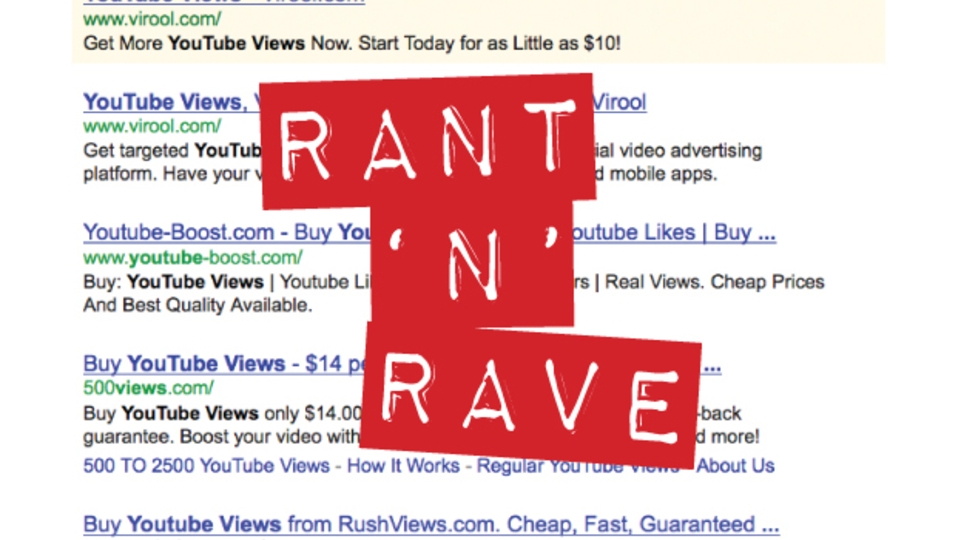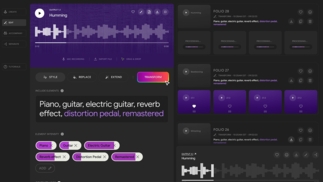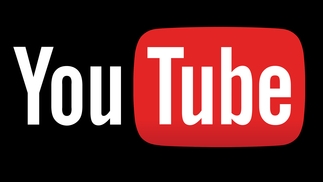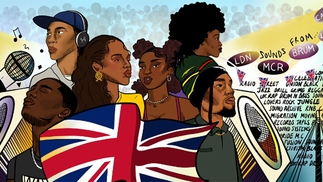RANT 'N' RAVE: CHEATS NEVER PROSPER
Buying Views

“Money can’t buy you love,” sang The Beatles, although most people do want to be loved. This is especially true of a lot of top-flight DJs, narcissists at the best of times, who feel all at sea if they aren’t constantly getting reassurance about how great they are — and popular.
Promoters mostly book DJs on how many people they think they’re going to pull through the door for their night. So it’s in the interest of the DJ (and their people) to show that they’re relatively well-known, have lots of fans, and always — but always — rock the party. Have you ever seen a DJ on a social network saying that they didn’t smash the club to bits? You never see a DJ posting, ‘Nobody I know came last night, and the seven people that were on the dancefloor left it when I dropped the new EDM one by Avicii & Nicky Romero’. Do you? It’s all about appearing to be popular, which is probably fair enough when your living depends on it.
What does seem to be highly dubious, though, is the practice of buying YouTube views and Facebook ‘Likes’. Earlier this year, YouTube stripped two billion views from various online channels — the inference being that these were gained improperly. Major labels were the main offenders: Universal lost a billion views, while Sony/BMG lost 850 million.
Michael Jackson’s YouTube channel lost 283 million views overnight, although you suspect it wasn’t actually him buying the YouTube views directly. Chris Brown lost 187 million hits — almost as many times as he’s hit his on/off girlfriend Rihanna — while Beyonce lost 151 million views for videos where she was never miming at all. Leona Lewis, meanwhile, Simon Cowell’s X-Factor protégé, lost 24 million views at a stroke. Leona who?
How many times have you been alerted to a new music video and seen that it’s already had 50,000 views, even though it’s only been up 10 minutes (or a few days, anyway). Some things do truly go viral, but a lot of the time it would appear that it’s been part of a major label’s marketing strategy to inflate views on a new video — so it looks like there’s a buzz building around a particular act or song.
The record labels blamed the cuts in their viewing figures on a change in the way that YouTube calculates its view count, but we probably know the real answer. With YouTube views operating as an unofficial worldwide popular music chart, a couple of hundred dollars on top of the marketing budget is peanuts if you manage to create a global hit.
The practice of buying perceived popularity is easy to do if you’ve got a bit of cash. Google ‘Buy YouTube Views’ and you get all manner of companies offering their services. ‘$14 for 5000 views,’ says 500views.com. YouTubeNuke.info have a YouTube video showing how you can buy 10,000 YouTube views in 48 hours. Their video, though, has been up at least three weeks and has only got 32,735 views — evidently not practicing what they preach, this lot.
It’s a similar story with Facebook — $70 will buy you 5000 ‘Likes’. BUT IT’S CHEATING! As opposed to the olden days, when it was all about reputation, everything on the internet was supposed to be measurable — but that’s not accounting for CHEATS. If you buy YouTube likes for your new single, YOU ARE A CHEAT. If you buy Facebook ‘Likes’, or try to buy your way into DJ Mag’s Top 100 DJs list, YOU ARE A CHEAT. You know who you are.
Too many promoters book acts on how popular they perceive them to be, and radio producers prioritise new singles by acts they perceive to be popular — as they believe that more people will want to hear the CHEATING act’s new single. So they look at internet ‘Likes’ and views, RATHER THAN LISTEN TO THE BLOODY TRACK OR MIX TO HEAR IF IT’S ANY GOOD OR NOT. Get a friggin’ grip. If most of the stats are dubious, then forget ‘em. Only going on views and likes is potentially giving you a distorted view. The real-time dance music equivalent of buying popularity would be showing up at a club gig to DJ, and bringing with you 500 blow-up dolls. Before the gig, you hurt your cheeks inflating them all, and then you arrange to have them waggle around the club while you DJ to a ‘packed’ floor. String and bamboo poles are perhaps involved to make your crowd look busier than it is.
The blow-up dolls may not roar with appreciation during your set — unless a pilled-up clubber starts giving them a seeing-to, maybe? — but your crowd may look busy if you squint through beer-goggle spectacles, or are partially obscured by the smoke machine. So, should we start presenting CHEATING DJs with blow-up dolls when they arrive to play at clubs?





